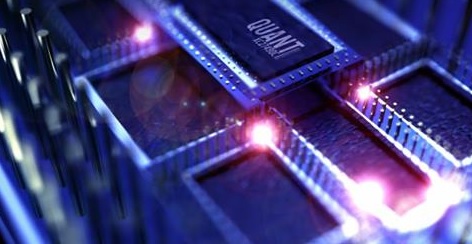

Scientists have made big strides towards building a quantum computer over the past five years, but there's one major hold up - the only material we can currently use to successfully read quantum information is aluminium. But the ideal quantum computers will need to work within a very narrow range of conditions... conditions in which aluminium stops being able to read quantum information.
It's a catch-22 that's been holding up progress for three decades, and now researchers in the Netherlands have finally overcome it by demonstrating that they can read the quantum information of the quantum computing particle-of-choice, Marjorana fermion, using a material known as niobium titanium nitride (NbTiN).
"The most beautiful outcome is that not only can we distinguish between the even and odd number of electrons, but a prepared, say, even state remains the same for more than one minute," David van Woerkom, lead researcher from Delft University of Technology, said in a press release. "Since we typically work with timescales of micro- or even nanoseconds, one minute is essentially an eternity."
But let's back up a second here, because to understand why the discovery is so important, you need to understand why scientists are so desperate to find a replacement for aluminium and build quantum computers using the Marjorana fermion.
The basis of all quantum computers is the quantum bit, or qubit. Normal computer bits store information in the form of a one or a zero, but a qubit is able to be in both the one and the zero state simultaneously, allowing it to process exponentially more information than current computers.
But while scientists have managed to create qubits in the past, it's been challenging for them to read the information stored without particles interacting with the nearby material and destroying their quantum state. To do this, they need to use a superconductor to determine whether the number of electrons in a qubit is even or odd - a process known as reading the parity state - and so far they've only ever managed it using aluminium. But the whole set-up is precarious and far from ideal.
That's where the Marjorana fermion comes in. This brand new particle wasdiscovered the end of last year after almost 80 years of searching. The find was a huge deal because it's the only known particle that's also its own antiparticle. That basically means that it's extremely aloof, and rarely interacts with its environment - making it an ideal candidate to use in quantum bits. But Marjorana can only be created in a super-powerful magnetic field. And, as luck would have it, aluminium is no longer superconductive in such a high magnetic field.
And this is why this new discovery is so exciting - van Woerkom and his team have now shown that not only do we have a material that can replace aluminium at reading quantum information, it also works with quantum computing's golden particle, Marjorana. The research has been published in Nature Physics.
Before you get too excited, there's a lot more work to be done. So far the team hasn't actually used niobium titanium nitride to read the quantum state of Marjorana. But now that we know this is possible, researchers can get busy creating qubits from Marjorana. And, if the particle lives up to its hype, that could kick-start a whole new wave of quantum computing research. We're pretty excited.
www.sciencealert.com/scientists-have-found-a-way-to-end-aluminium-s-quantum-monopoly